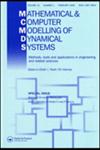模糊随机环境下具有折扣现金流的不完全制造系统的生产支付策略分析
IF 1.8
4区 数学
Q3 COMPUTER SCIENCE, INTERDISCIPLINARY APPLICATIONS
Mathematical and Computer Modelling of Dynamical Systems
Pub Date : 2020-06-22
DOI:10.1080/13873954.2020.1771380
引用次数: 10
摘要
摘要本文考虑了一个模糊随机环境下具有信贷政策的不完全制造系统。供应商同时向零售商提供允许的付款延迟或现金折扣,零售商反过来向其客户提供允许的延迟期。我们使用了另一种方法——贴现现金流分析来建立库存问题。假设机器从“控制中”状态转变为“失控”状态所经过的时间是一个模糊随机变量。作为该参数的函数,利润函数也是一个随机模糊变量。基于模糊事件的可信度测度,可以将具有模糊随机经过时间的模型转化为清晰模型。我们建立了几个理论结果,以获得在所有未来现金流中提供最大现值的解决方案。最后,通过算例对结果进行了说明,并获得了一些管理启示。本文章由计算机程序翻译,如有差异,请以英文原文为准。
Production and payment policies for an imperfect manufacturing system with discount cash flows analysis in fuzzy random environments
ABSTRACT This paper considers an imperfect manufacturing system with credit policies in fuzzy random environments. The supplier simultaneously offers the retailer either a permissible delay in payments or a cash discount and retailer in turn provides its customer a permissible delay period. We used an alternate approach – discount cash flow analysis to establish an inventory problem. It is assumed that the elapsed time until the machine shifts from ‘in-control’ state to ‘out-of-control’ state is characterized as a fuzzy random variable. As a function of this parameter, the profit function is also a random fuzzy variable. Based on the credibility measure of fuzzy event, the model with fuzzy random elapsed time can be transformed into a crisp model . We establish several theoretical results to obtain the solution that provides the largest present value of all future cash flows. Finally, numerical example is given to illustrate the results and obtain some managerial insights.
求助全文
通过发布文献求助,成功后即可免费获取论文全文。
去求助
来源期刊
CiteScore
3.80
自引率
5.30%
发文量
7
审稿时长
>12 weeks
期刊介绍:
Mathematical and Computer Modelling of Dynamical Systems (MCMDS) publishes high quality international research that presents new ideas and approaches in the derivation, simplification, and validation of models and sub-models of relevance to complex (real-world) dynamical systems.
The journal brings together engineers and scientists working in different areas of application and/or theory where researchers can learn about recent developments across engineering, environmental systems, and biotechnology amongst other fields. As MCMDS covers a wide range of application areas, papers aim to be accessible to readers who are not necessarily experts in the specific area of application.
MCMDS welcomes original articles on a range of topics including:
-methods of modelling and simulation-
automation of modelling-
qualitative and modular modelling-
data-based and learning-based modelling-
uncertainties and the effects of modelling errors on system performance-
application of modelling to complex real-world systems.

 求助内容:
求助内容: 应助结果提醒方式:
应助结果提醒方式:


